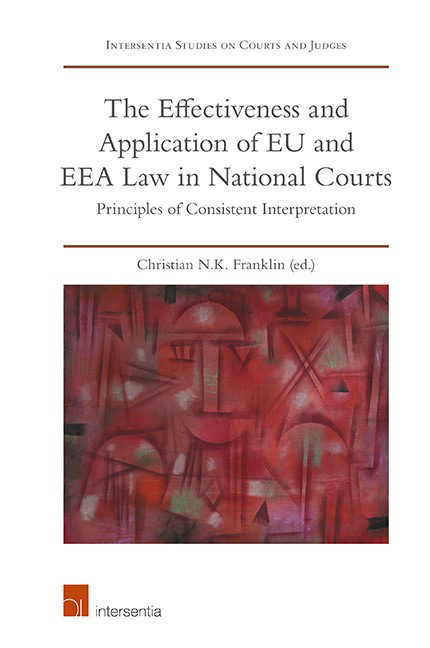 The Effectiveness and Application of EU and EEA Law in National Courts
The Effectiveness and Application of EU and EEA Law in National Courts The Netherlands
Published online by Cambridge University Press: 31 January 2019
Summary
INTRODUCTION
The Netherlands were one of the six states founding the European Community on Coal and Steel, the first of the European Communities, back in 1951. The Netherlands have been very active in shaping the European Community and later the European Union legal order, with the conclusion of the Maastricht Treaty (1992) and the Amsterdam Treaty (1999) under Dutch presidency of the Council. According to the European Commission Database on infringement decisions, of the six founding members, the Netherlands have attracted the fewest infringement decisions and are among the Member States that generally comply well with European Union (EU) legislation. Courts seem well aware of their duties and comply fairly conscientiously with their European duties.
At the risk of stating the obvious, this does not mean that inconsistencies between EU and national law do not occur. Delays in transposition occur frequently, and transposition is by no means flawless. In some cases, national legislation is found wanting but is not repaired by the legislature, or only after a long time. Traditionally, the Dutch legal order is characterised by openness towards influences of international law. According to Art. 93 of the Dutch Constitution, “ [p]rovisions of treaties and of resolutions by international institutions which may be binding on all persons by virtue of their contents shall become binding after they have been published “. According to Art. 94 of the Constitution, national laws shall not be applicable if their application is in conflict with such binding treaty provisions and resolutions. These Articles are the result of constitutional amendments made in the 1950s, which were intended to accommodate the growing impact of international and European law on the Dutch legal order. In a judgment from 2005, however, the Dutch Supreme Court stated that European law can impact Dutch law not because of the Dutch Constitution, but because of European law itself. In other words, the Supreme Court accepted the autonomy and supremacy of European law vis-a-vis national law. This position was supported by mainstream Dutch constitutional theory at that time. It must be noted, however, that the status of this case-law is at present disputed: it is contested whether it really means that Art.
- Type
- Chapter
- Information
- The Effectiveness and Application of EU and EEA Law in National CourtsPrinciples of Consistent Interpretation, pp. 71 - 100Publisher: IntersentiaPrint publication year: 2018


